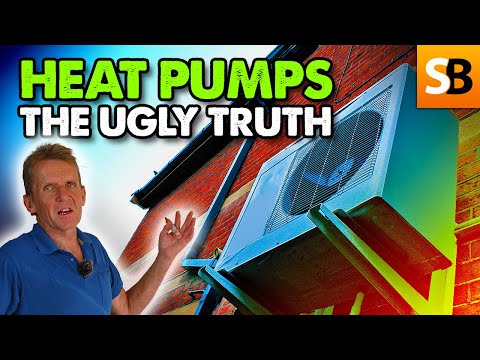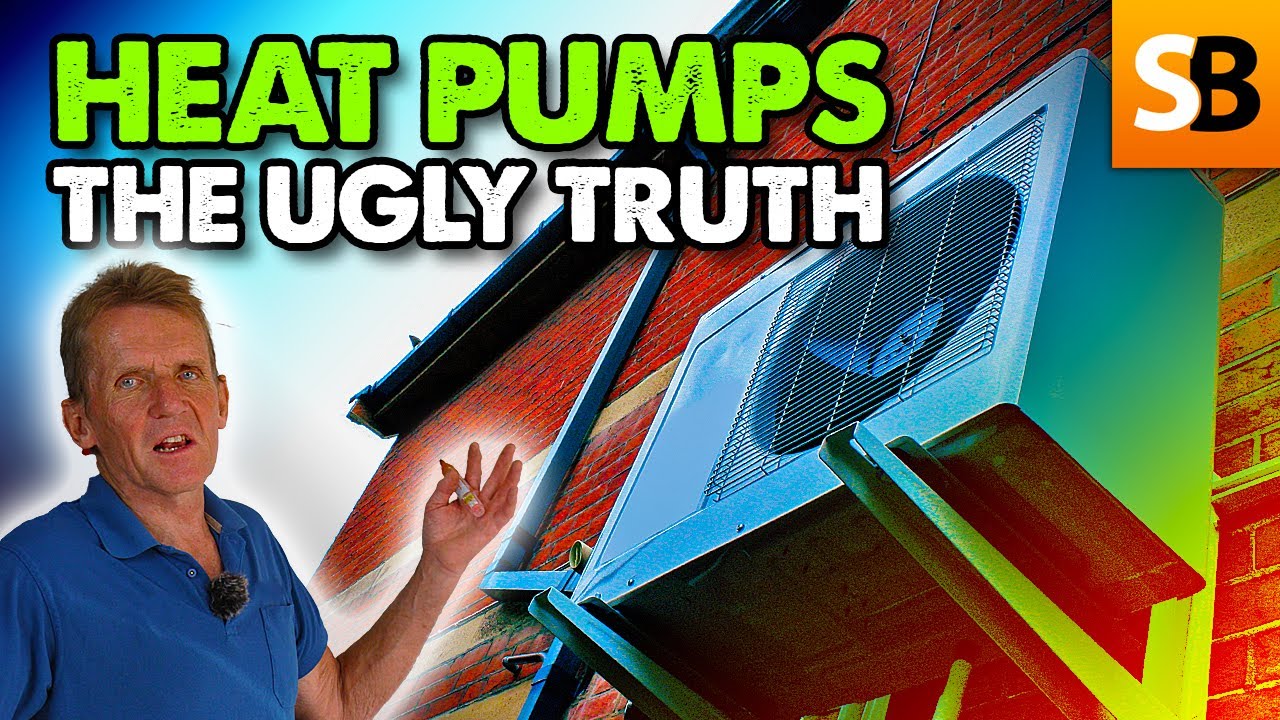Discover the Surprising Drawbacks of Heat Pump Water Heaters and How They May Impact Your Home! Are you considering upgrading to a heat pump water heater? While these innovative appliances offer numerous benefits, it’s crucial to understand their potential downsides before making a decision. One notable disadvantage is energy efficiency. Although heat pump water heaters are more energy-efficient than traditional models, they may not perform optimally in colder climates. This means that they might consume more electricity during colder months, leading to higher energy bills. Another drawback to consider is size and space requirements. Heat pump water heaters tend to be larger and require more space compared to conventional models. If you have limited space or live in an apartment, installation could be challenging. Lastly, initial cost is an important consideration. Heat pump water heaters generally have a higher upfront cost than traditional models, which might deter some homeowners. However, it’s essential to weigh this against the long-term energy savings they can provide. By understanding these potential downsides, you can make an informed decision about whether a heat pump water heater is the right choice for your home.

Disadvantages of Heat Pump Water Heaters
| Disadvantage | Description |
|---|---|
| Higher upfront cost | Heat pump water heaters tend to have a higher initial cost compared to traditional electric or gas water heaters. This can make them less affordable for some homeowners. |
| Requires ample space | Heat pump water heaters are usually larger than conventional models due to the need for an air compressor and larger storage tanks. Therefore, they may require more space for installation. |
| Dependent on external temperature | The efficiency of heat pump water heaters can be impacted by external temperatures. In colder climates, the unit may struggle to extract heat from the air, leading to reduced performance and increased energy consumption. |
| Noisy operation | Heat pump water heaters can produce noise during operation. The compressor and fan used to extract heat from the air can generate a noticeable sound, which may be a concern for those seeking a quiet environment. |
| Requires proper maintenance | Heat pump water heaters require regular maintenance, including cleaning or replacing air filters, to ensure optimal performance. Failure to maintain the system can result in reduced efficiency and potential breakdowns. |
| Relies on electricity | While heat pump water heaters are energy-efficient, they rely on electricity to operate. This means that in areas with high electricity costs, the long-term savings may not be as significant compared to other energy sources. |
As an expert, it is crucial to consider the disadvantages of heat pump water heaters when making recommendations to homeowners. Although they offer numerous benefits, such as energy efficiency and lower operating costs, understanding these drawbacks can help individuals make informed decisions about their water heating needs.
“Why Heat Pumps May Not Be the Future: Debunking the Hype”
The Disadvantages of a Heat Pump Water Heater
Heat pump water heaters are becoming increasingly popular due to their energy efficiency and cost-saving benefits. However, like any other appliance, they also come with their fair share of disadvantages. It is important to consider these drawbacks before investing in a heat pump water heater for your home. In this article, we will explore five compelling disadvantages of a heat pump water heater.
1. High Initial Cost
One of the major disadvantages of a heat pump water heater is its high initial cost. Compared to traditional water heaters, heat pump water heaters are significantly more expensive. The cost of purchasing and installing a heat pump water heater can be a deterrent for many homeowners, especially those on a tight budget.
However, it is important to note that although the initial cost is higher, heat pump water heaters can help you save money in the long run due to their energy efficiency. They consume less electricity, resulting in lower energy bills. Therefore, it is essential to weigh the initial cost against the long-term savings before making a decision.
2. Limited Efficiency in Cold Climates
Heat pump water heaters extract heat from the surrounding air and use it to heat the water. However, they are less efficient in colder climates where the air temperature drops significantly. In such conditions, the heat pump may struggle to extract enough heat from the air, resulting in reduced efficiency and longer heating times.
It is important to consider the climate of your region before opting for a heat pump water heater. If you live in an area with long, cold winters, it may be more beneficial to choose an alternative water heating system that can perform efficiently in such conditions.
3. Space Requirements
Heat pump water heaters require a significant amount of space for installation. They are larger in size compared to traditional water heaters, which can be a disadvantage for homeowners with limited space. If you have a small utility room or a compact living space, it may be challenging to find a suitable location for the heat pump water heater.
Additionally, heat pump water heaters require proper ventilation to function efficiently. This means that they need to be installed in an area with sufficient airflow. If your available space does not meet the required ventilation criteria, it may not be feasible to install a heat pump water heater.
4. Noise Levels
Heat pump water heaters can be noisy during operation. The heat pump component of the system produces noise as it extracts heat from the air. This can be a nuisance, especially if the water heater is installed in a living space or near bedrooms.
While manufacturers are continuously working on reducing the noise levels of heat pump water heaters, it is important to consider the location of the installation and its proximity to living areas. If noise is a concern for you, it may be worth exploring quieter alternatives.
5. Maintenance and Repairs
Heat pump water heaters require regular maintenance to ensure optimal performance. The heat pump and other components need to be cleaned, checked, and serviced periodically. This can add to the overall cost and effort required to maintain the water heater.
In addition, if any component of the heat pump water heater malfunctions or requires repairs, it can be more expensive compared to traditional water heaters. The complex nature of heat pump water heaters often requires professional assistance for repairs, which can result in higher service costs.
Conclusion
While heat pump water heaters offer numerous advantages, it is essential to consider the disadvantages before making a decision. The high initial cost, limited efficiency in cold climates, space requirements, noise levels, and maintenance and repair needs are important factors to evaluate. By carefully assessing these drawbacks, you can determine whether a heat pump water heater is the right choice for your home.
Disadvantages of a Heat Pump Water Heater:
- Higher upfront cost compared to traditional water heaters
- Requires a larger space for installation
- May produce noise during operation
- Performance can be affected by ambient temperature
- Requires regular maintenance and cleaning
- May not be suitable for extremely cold climates
- Electricity usage may increase
- May take longer to heat water compared to conventional water heaters

